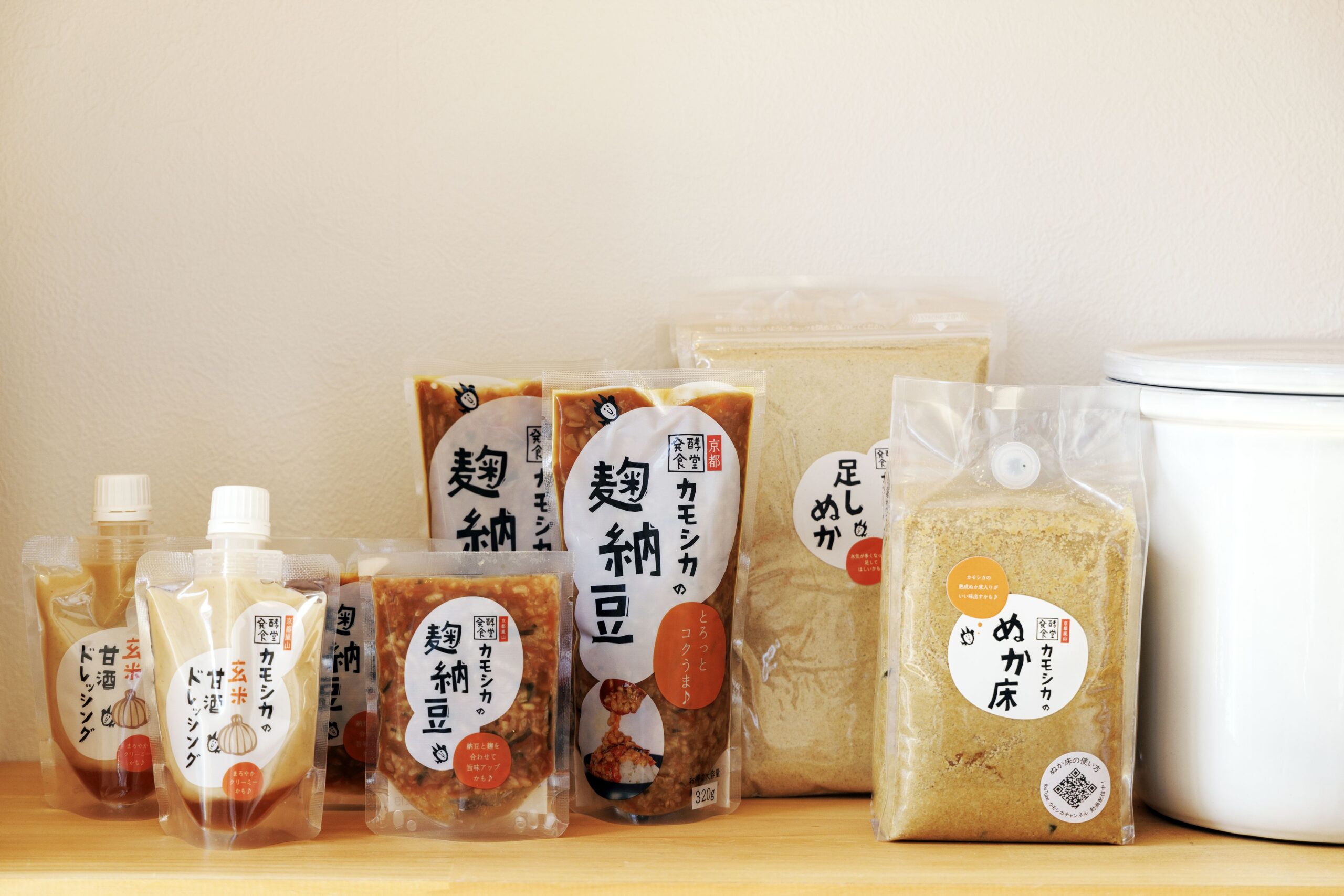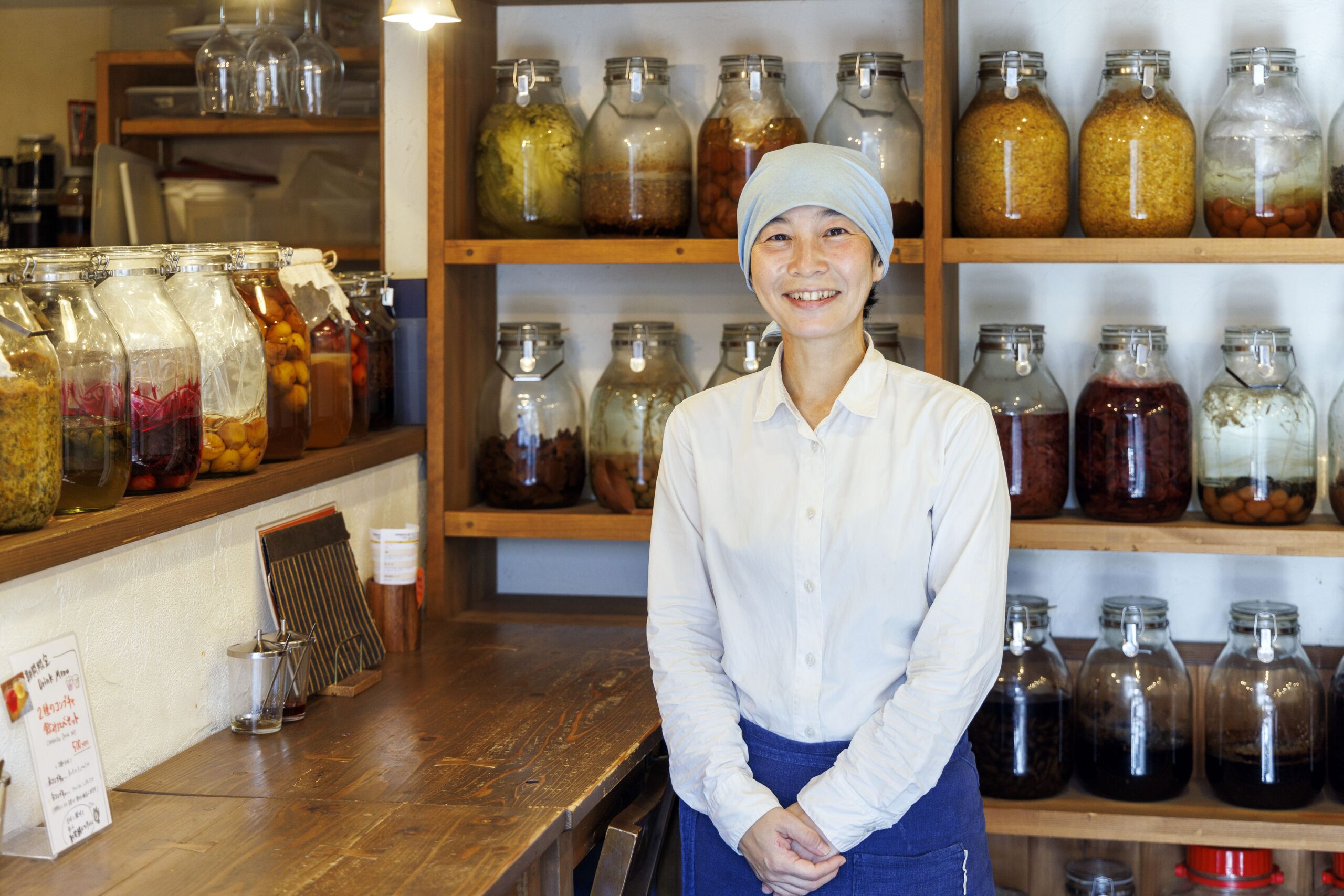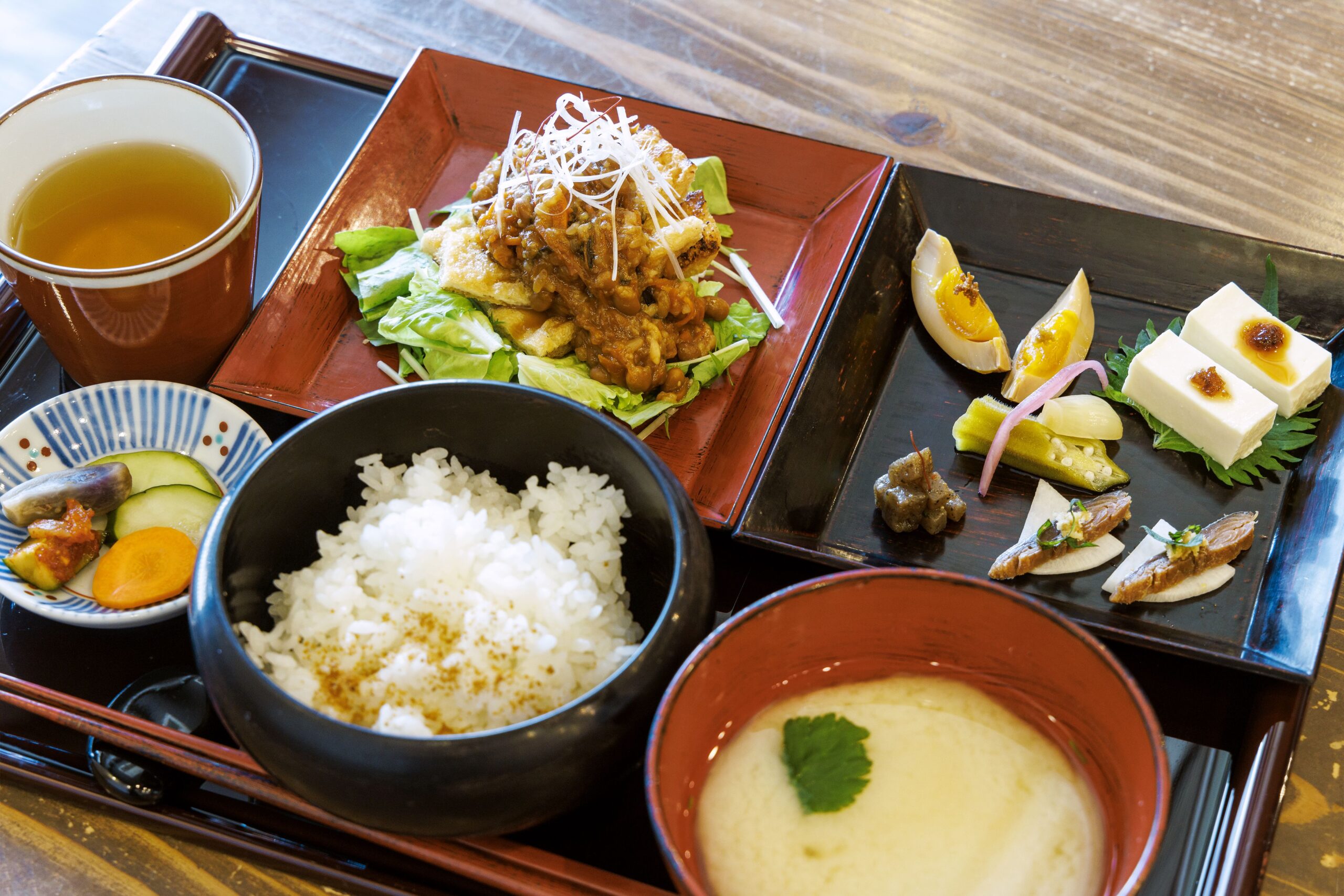Spreading the appeal of fermented foods worldwide
University News | April 30, 2025
This article was published in the Autumn 2024 issue of Litterae Populi. The full issue can be found here.
Megumi Seki is the founder and representative of KamoShika Fermentation Kyoto Inc., a fermentation restraint and food manufacturing in Arashiyama, Kyoto. She says, “Since Japan is a pioneer in fermentation, I want to spread the appeal of fermented foods not only within Japan, but also abroad.” She shared how her time as a student at Hokkaido University and other life events have led her to pursue that aspiration.
-
Megumi Seki
-
Representative of KamoShika Fermentation Kyoto Inc.
Graduated from the School of Economics and Business
In 2008, completed the master’s program at Hokkaido University Graduate School of Agriculture. Began research at Mercian Corporation the same year to enhance the quality of Japanese wine. Started studying in France in 2017. Appointed as the first female Manager of Preparation at the company in 2021. Also serves as the Acting Director of Katsunuma Winery, and was interviewed for this article during this period. In April 2024, she assumes the charge of Production and Engineering, Production Management Department. Certified as an oenologist by the University of Burgundy. Received the 2015 ASEV Japan Technical Merit Award.
—You’re originally from Kyoto. What was your childhood like?
I grew up in the rural countryside of northern Kyoto Prefecture, surrounded by nature. I often ran around playing with my slightly older brother. My family ran a pharmacy, and my grandfather was the head priest of a Buddhist temple. Growing up in that environment shaped my interest in healthcare and entrepreneurship, my views on life and death, and ultimately my current work.
—What was your student life like at Hokkaido University?
I chose the School of Economics and Business because I wanted to start my own business in the healthcare field someday. To be honest, my university life was somewhat disappointing at first and I often felt unsure of myself. But a major turning point came when I took Professor Kikuji Yoneyama’s class on contemporary society. When I saw him silently writing “coincidence × coincidence = connection” on the blackboard, I felt like he’d understand what I was struggling with. I visited his lab right after that. Through our conversations, the frustration I’d been feeling turned into hope. Without Professor Yoneyama, I wouldn’t be who I am today. Meeting the mentor of my life was the greatest reward from my time at Hokkaido University.

Seki develops and sells specialty products, including amazake dressings (made with fermented rice), natto with koji (fermented soybeans with rice malt), and nukadoko (fermented rice bran beds for pickling)
— Could you tell us about your experience in Sweden?
Thanks to Professor Yoneyama’s efforts, Hokkaido University signed a student exchange agreement with the University of Gothenburg, and I was the first Hokkaido University student to study there. Although I struggled with the language because there were very few Japanese students, I had a great time. During my stay, I conducted fieldwork at welfare facilities and was struck by how much more advanced they were than those in Japan. After returning to Japan, I conducted further research at welfare facilities in Sapporo and wrote my graduation thesis comparing the systems in both countries.
—What led you to establish the company centered around fermentation?
After graduating, I gained experience at a medical consulting firm in Tokyo, among other places. The Great East Japan Earthquake of 2011 became the next turning point for me. Watching the nuclear disaster unfold, I realized that continuing on the same life and career path was no longer an option. I felt the need to return to the basics and focus on something more essential, and for me, that was fermentation. I came to believe that the foundation of medicine and healthcare is prevention, and the foundation of prevention is food. And the foundation of Japanese cuisine is fermentation. One of the catalysts for me was when I made miso as a hobby and was deeply moved by the profound nature of fermentation.
—Can you tell us about the unique features of the company and your future plans?
Under the concept of “Life becomes energetic with life ~Bringing fermented foods back to the kitchen~,” I focus on running the restaurant, as well as developing, producing, and selling fermented foods. Fermentation is driven by the work of microorganisms. Through fermented foods, I want to convey the power and potential of life, which I personally experienced through childbirth. To do this, people first need to realize that fermented foods taste good, and my restaurant serves as a gateway to that discovery. Moving forward, I hope to share the value of fermentation internationally as well. While Sweden is a pioneer in welfare, Japan leads the way in fermentation.
—Lastly, do you have a message for students at Hokkaido University?
Being young is a gift in itself, full of possibilities, so I hope you never give up, even in the face of difficulties. Live true to yourself, remembering that who you are today shapes who you will become tomorrow. Strive to live your student life in a way that allows you to look back with pride.
This article was published in the Autumn 2024 issue of Litterae Populi. The full issue can be found here.


